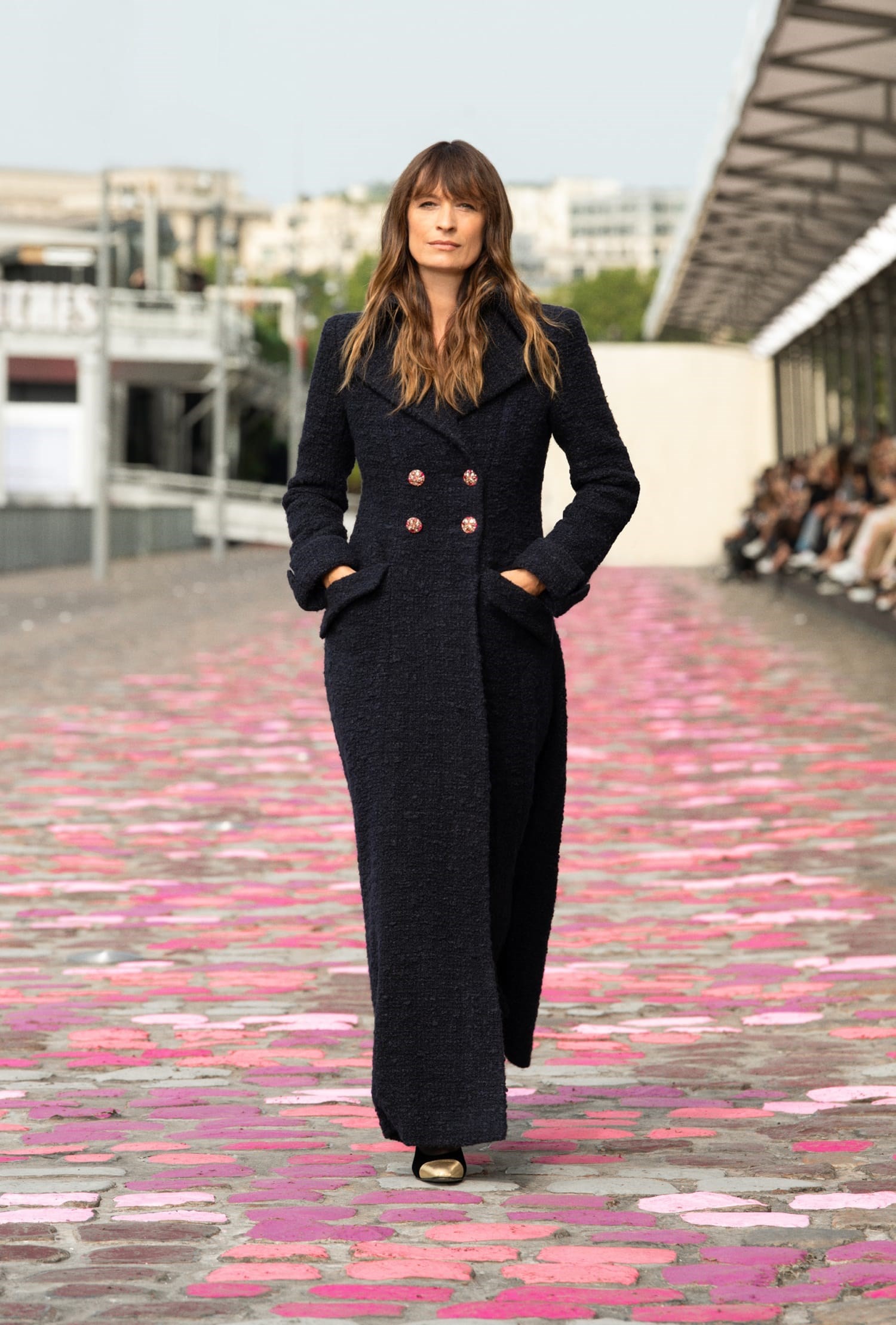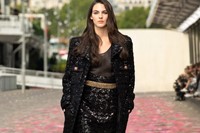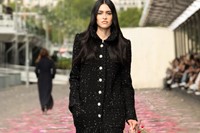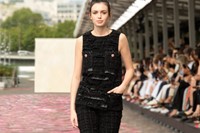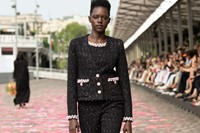The idea of the Parisienne as a fashion ideal has a rich history – and I seem to be writing a great deal about history this Paris haute couture season, but it's a métier whose contemporary identity can never be extracted from its illustrious past. Indeed, in the eyes of many, one of the reasons couture continues is, in a sense, to keep history alive, to retain manners and means of creation that would otherwise have been erased. There are throwbacks in couture to the world of Marie Antoinette and Louis XVI, ways of making clothes that have been codified in France for centuries.
That said, the Parisienne is actually a much more recent idea – its emergence dates to the 19th century and to the birth of haute couture in the middle of the century, which served to cement Paris’ position as the fashion capital of the world. From then, it wasn’t enough for fashion to simply originate from Paris, it had to be created there, by hand, and a whole industry was spun around the inescapable yet difficult-to-define allure of the Parisian woman. The French journalist Octave Uzanne, for one, was fascinated by this notion, and entranced by fashion, and you can see reflections of his work in the art of the time – Manet’s Nana, for instance, is a Parisienne par excellence.
Today, the allure of this mythical figure is undimmed – it was the anchor of Virginie Viard’s Autumn/Winter 2023 Chanel haute couture show. Of course, Gabrielle Chanel herself was a quintessential Parisienne – in spirit, if not in birth (she was born in the Loire Valley, which doesn’t have the same ring). So it makes sense that a collection executed in her name would take the allure of the city’s feminine incarnation as its lynchpin.
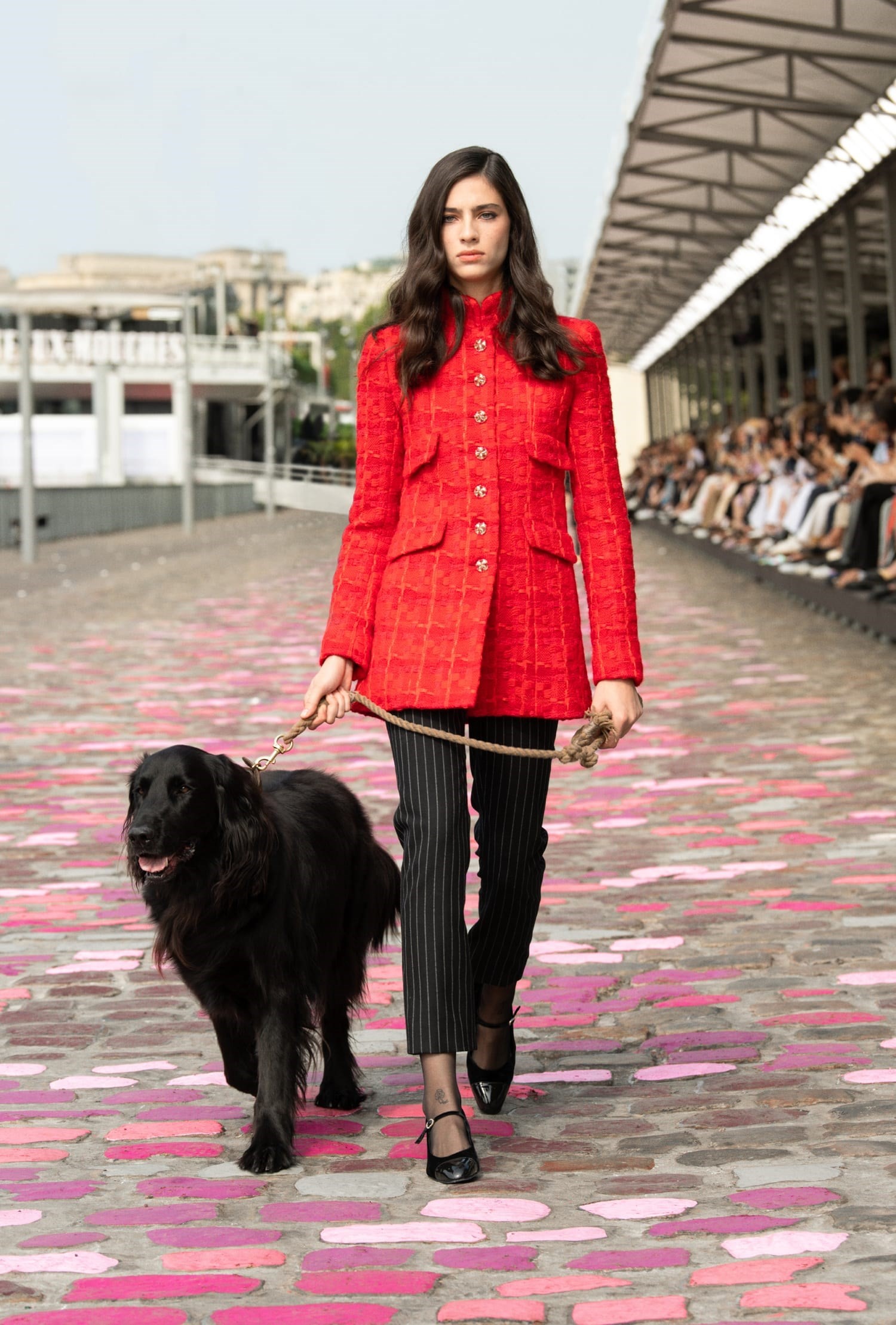
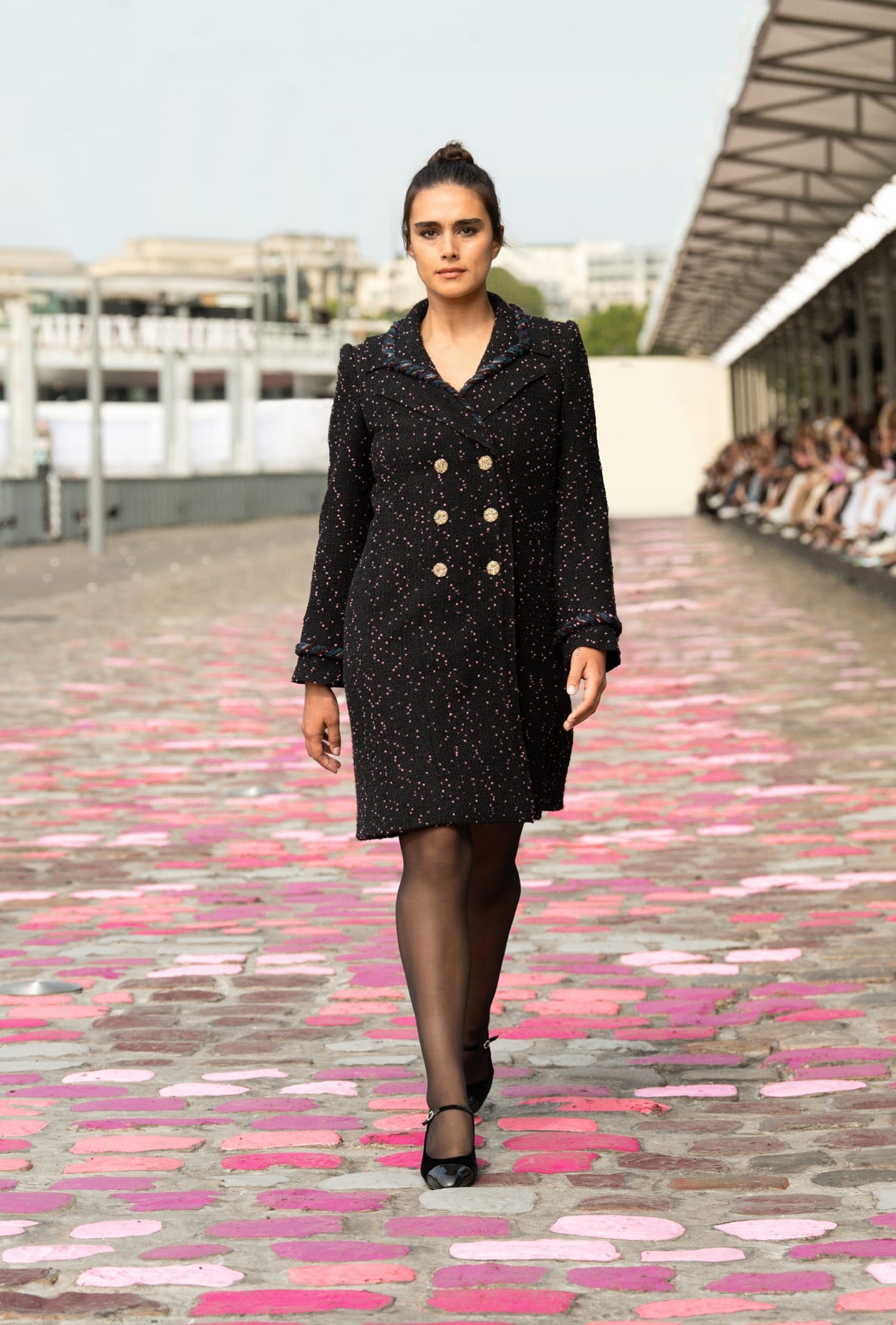
Walking onto the quayside of the Seine, the notion was immediately established: the green kiosks that habitually trick tourists into parting with hard-earned cash for mass-produced art and dodgy fridge magnets had been Chanel-ified with postcards and posters featuring hand-drawn artwork of different incarnations of the Parisienne today – different models, different looks, but obviously all Chanel. The same was paraded down the cobbled quai, the stones themselves covered with a film of colour so, in pictures, they seemed to mottle together to form a tweed underfoot, reflecting the fabrics wrapped around the models.
The diverse contemporary iterations of the Parisienne began to emerge, with constant change being the key – the opening model was Caroline de Maigret, an embraced modern avatar of Parisian style, in a tramline-straight bouclé overcoat in Marinère navy; she was followed by figures in tailoring and supple chiffon dresses, embroidered and plain, models toting baskets of flowers, one even leading a pet dog. “Playing with opposites and contrasts, with nonchalance and elegance, is like standing on a line between strength and delicacy,” said Viard. “Which, at Chanel, is what we call allure.”
Instead of a singular narrative, Viard’s Parisienne was about diversity, about rule-breaking – although her show closed with couture’s traditional bride (incidentally, something Gabrielle Chanel never did herself), the rest mixed and slipped between flou and tailleur, day and evening. There was, of course, something glorious incongruous about delicately beaded, rose-strewn evening dresses parading down a dockside in the midday sun, but the daywear had a reality you rarely see come to life in couture. Then again, that’s exactly what Gabrielle Chanel did with her own designs, and wound up changing the way the world dressed. Including the Parisienne, whose allure with forevermore will be shaped by the vision of that girl from the Loire Valley.
